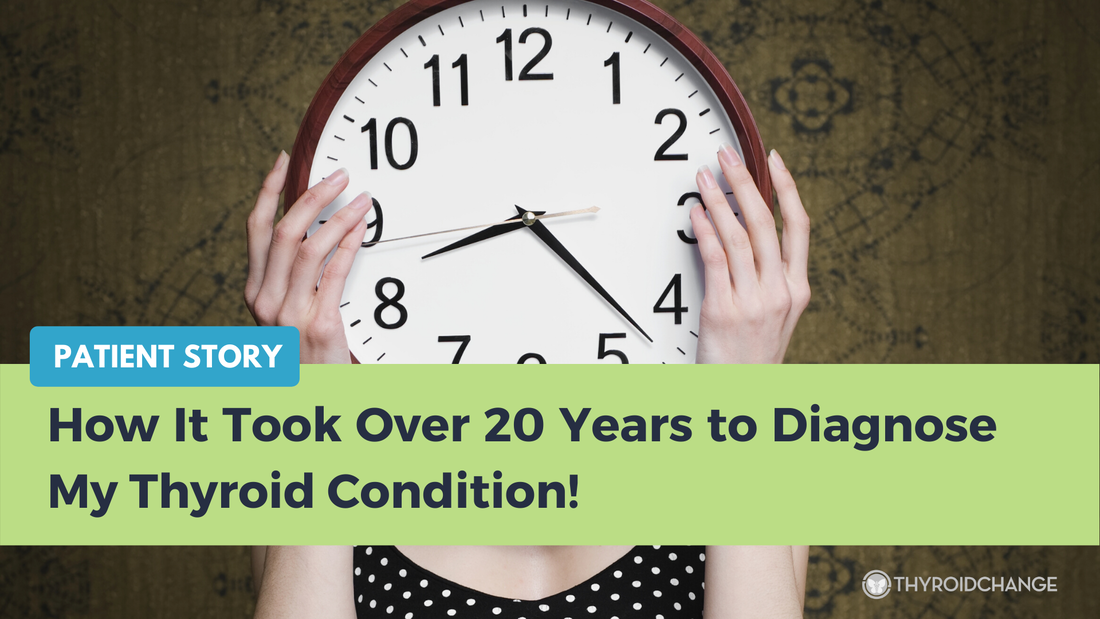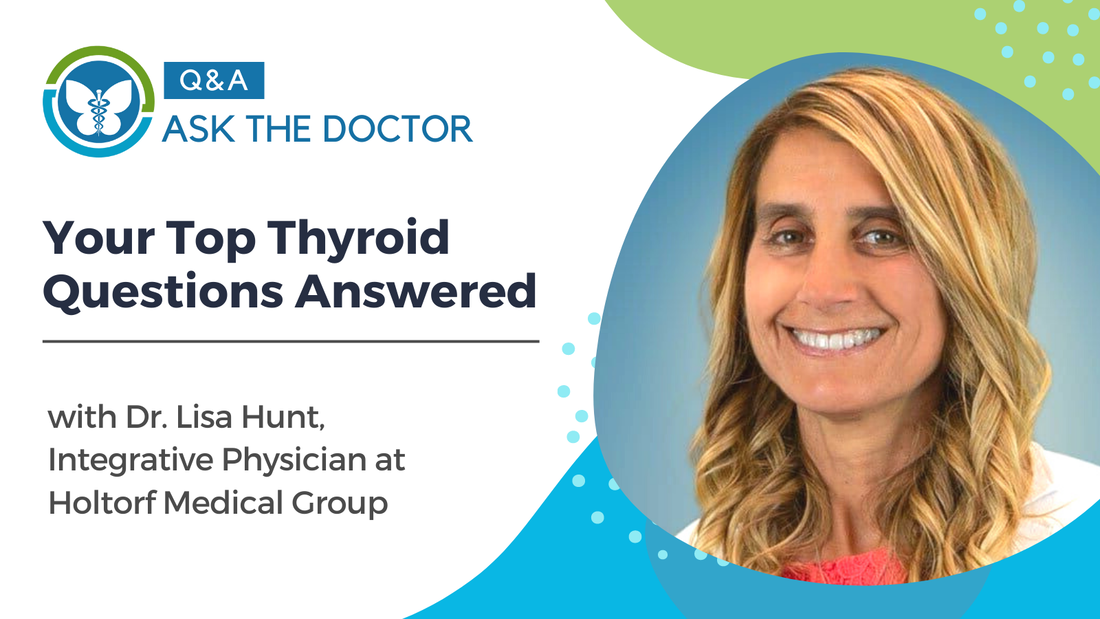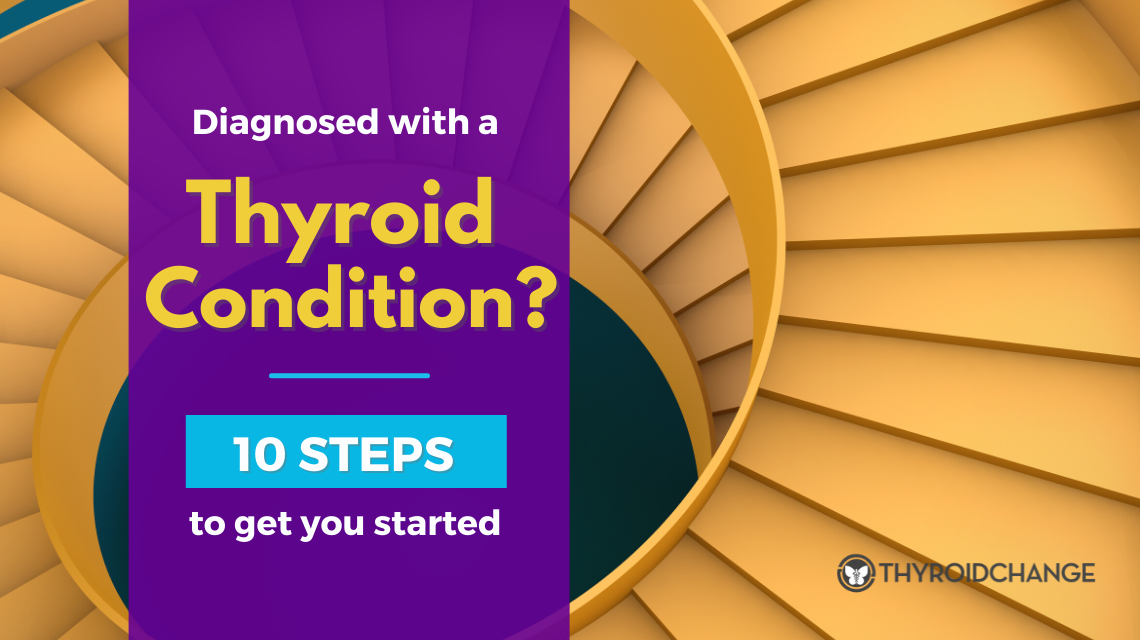15th Jun 2022
How It Took Over 20 Years to Diagnose My Thyroid Condition

Do you know someone who was diagnosed with ADHD, depression, anxiety, or a mood disorder? Read about one patient’s journey struggling with various mental disorders only to discover 20+ years later that it was a thyroid condition all along. If you know someone with a similar case, have them look into getting a full thyroid panel along with a doctor who understands optimal ranges.
Hyperthyroidism: A Mirror Image of Childhood Mental Illness
Sadly, my story is not uncommon for children raised in the 90s and early 2000s.
This was a time when pharmaceutical companies were making it big in producing medication for ADHD and mental illness. Doctors looked at patients as “textbook examples” to fit a diagnostic mold instead of looking at the whole person.
Because of the surge at the time to put young kids on prescription drugs to treat attention issues, hyperactivity, mood swings, and depression, my underlying illness was masked by symptoms they thought to be oh-so-familiar in the psychology world.
In reality, my mental issues were indeed part of a very serious and very physical, untreated hyperthyroid condition during my childhood and adolescent years.
______
The Start of Getting It Wrong
As a young child around the age of four, I started to develop anger and mood issues. My mom, being a teacher, felt that I should start working with a child psychologist in hopes that I learn coping skills.
Before long, around the age of six, I began having trouble focusing, staying still, “bouncing off the walls” (as they would say), difficulty sleeping at night, and fits of rage that were increasing. My parents eventually gave into the newest trend ofADHD medication starting when I was only six years old.
______
All the Thyroid Signs Were There
As I continued to get older, these issues only became more challenging and I was put on more and more medication and eventually given the diagnoses of ADHD, a mood disorder, and a learning disability.
By this point, my voice had become very raspy and hoarse. My providers, as well as my parents, attributed my damaged voice to my uncontrollable bouts of yelling or crying.
Again, I was a textbook case of multiple psychological disorders, so why would they need to think outside-of-the-box and look into an endocrine issue?
As time went on, I could not gain weight despite growing taller, and going to sleep at night became impossible. Sadly, I know now that was displaying signs of hyperthyroidism.
Soon, I hit puberty and was in the full-swing of adolescence. I was on a cocktail of pharmaceutical medications to treat all of my “diagnosed psychological conditions”.
I then began to have sudden weight gain and face puffiness, and my practitioners attributed this to all of the medication I was on.
It was at this time that they began doing lab work and discovered that I was hypothyroid. But again, they felt that the developed hypothyroid condition was only a side effect of the lithium I was on. In actuality, I was swinging between hyperthyroidism and hypothyroidism.
______
Despite the Best Doctors, It Was a Misdiagnosis
I grew up in a highly educated and wealthy family. We had two of the best teaching hospitals: UNC and Duke University Hospital, both on the east coast of the U.S. and within minutes of our home.
My parents always talked about how lucky we were to have some of the best doctors right here at home. This may be one of the reasons why a second opinion was never sought out. Why would we need a second opinion when we are already working with the best of the best doctors, right?
For my first pregnancy, I was tapered off a lot of my medication. After our first child was born, I started to notice that something wasn’t right…. I felt GREAT and I wasn’t on much medication at all!
My current psychiatrist started slowly taking me off all of my medication and realized the doctors from twenty years ago might have got it wrong.
A few years later, I successfully went through a second pregnancy not needing any medication to treat a mental illness.
Then, after working closely with an amazing endocrinologist, it was discovered that my symptoms were a result of a raging thyroid condition and I had been completely misdiagnosed with ADHD and various mental illnesses.
______
The Thyroid Mental Struggle is Real
As happy as I was to know that it was a treatable thyroid condition, it is still a big part of my life.
My thyroid, at times, still affects the quality of my life when my levels go crazy. And when it does, it can look very much like brief periods of depression, anxiety, and other various textbook mental illnesses.
It is amazing looking back at all the clear signs that were missed. It is also scary to know how much of those “mental” symptoms can mirror other very serious health conditions and how frequently they are overlooked.
How many other patients like me are diagnosed with a mental condition, but are really suffering with an undiagnosed thyroid disorder?
Now that I am a mother of two amazing kids, I made a vow to always second guess and get second opinions for my kids no matter how “obvious” the diagnosis might be.
And, I am continuing to learn more and more about the impact of thyroid conditions and how they can affect the physical and mental health of children, and especially women at different stages of their lives.
Looking back, it saddens me that I was receiving incorrect care for an incorrect illness most of my life and suffering. But I find courage in knowing that I can educate parents and loved ones of those living with this invisible illness that affects so much of how we act, feel, live, and portray ourselves to others.
I’m living proof that a thyroid condition can wreak havoc at any age and can be the cause of a full range of mental symptoms and still be misdiagnosed.
It was never just in my head.

Ashley Guffey (left) with her husband, children, and dog, Samson.
About the Author

Ashley Guffey, is a thyroid patient who was born and raised in Chapel Hill, North Carolina. She went to Greensboro College and achieved a degree in Special Education. She taught Special Education for seven years before becoming a stay-at-home mom / domestic engineer. Despite her thyroid condition, she is now thriving with days filled chasing around two very high-demanding young “bosses” and working out at the gym as much as possible. She hopes her story helps others receive an accurate diagnosis that they desperately deserve.
SIMILAR ARTICLES
More like this...

15th Jun 2022
Your Top Thyroid Questions Answered: Q&A with Dr. Lisa Hunt of Holtorf Medical Group
I had the pleasure of speaking with Lisa Hunt, D.O., an integrative physician at Holtorf Medical Group (www.holtorfmed.com) in El Segundo, CA a short while ago. I polled my audience and your top thyroid-related questions are answered here by Dr. Hunt. Dr. Hunt is a board-certified integrative physician and has extensive experience in thyroid health, hormone replacement, immune dysfunction and chronic conditions.
Read Article
15th Jun 2022
Diagnosed With a Thyroid Condition? 10 Steps to Get You Started
Pursuing proper treatment and an overall healthy lifestyle that includes eating well and exercising can help you manage a thyroid condition. But what else can you do to live well with and thrive with your condition? The information can be overwhelming and Annabel Bateman, thyroid health advocate and author, has created this guide to walk you through essential lifestyle tips once you have been diagnosed.
Read Article
15th Jun 2022
11 Tips On How To Take Your Thyroid Medication Properly
Are you taking your thyroid hormone replacement medication correctly? Did you know that how and when you take your thyroid medication can affect your ability to absorb the necessary hormone properly? In the article below, I investigate the factors that contribute to correctly (or incorrectly) taking thyroid replacement hormone and on how thyroid patients can get the most out of their medication.
Read Article